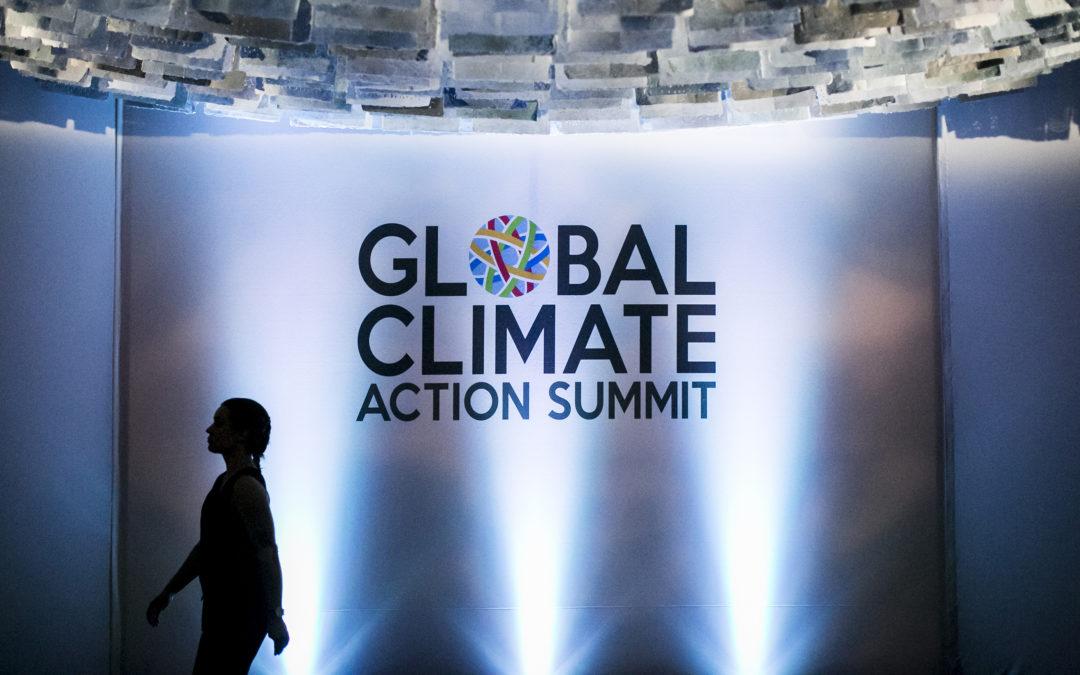
In the age of globalization, corporate supply chains typically stretch around the world. Such complexity means it’s next to impossible for business leaders to assess potential risks at each stage of the value chain—which is especially problematic as water scarcity, extreme weather and other climate-induced impacts become the norm.
Research shows that suppliers, and the companies they serve, are increasingly concerned about climate-related threats: More than 75 percent of global suppliers report climate risks with the potential to generate a substantive change in their business, according to 2018 data from CDP.
In an effort to collectively respond, last week major global companies came together to fortify their supply chains against climate change.
Beverage giant Coca-Cola and consumer packaged goods firm Mars, Inc. are among the first to join the Climate-Resilient Value Chains Leaders Platform. As the name implies, the new digital platform is intended to help companies build more resilient supply chains by identifying and mitigating climate risk.
Business for Social Responsibility (BSR), which launched the platform last Thursday, says there’s a lot at stake in safeguarding supply chains for an uncertain future. As much as 80 percent of global trade is integrated into supply chains, including trade in intermediate goods and services of about $12 trillion annually, the nonprofit says, citing data from the U.N. Conference on Trade and Development. Many of those supply chains move through parts of the world most vulnerable to climate impacts.
Participating companies committed to “develop shared tools and methods that help them prioritize climate resilience,” BSR says. This includes efforts to investigate physical climate risks in their supply chains and help vulnerable supplier communities cope, as well as mitigate their own contributions to climate change in the form of greenhouse gas emissions.
Building on established best practice for corporate climate action, BSR encouraged participating firms to lean on existing tools from groups like the Science-Based Targets initiative and RE100 to get their carbon emissions in check. Companies will share the data they add to the platform as they track and mitigate supply chain risks, in an attempt to accelerate the adoption of climate-resilience measures across the private sector.
“Supply chains, the engines of global growth, are broken,” Barry Parkin, chief sustainability and procurement officer for Mars, said in a statement. “To fix them, we must shift to long-term models for corporate buying that are anchored on building mutuality, reliability, resilience, and risk management into the core of our buying patterns.”
As corporations see the commodities and services they depend upon put at increased risk, they seem more and more willing to share information—even with firms they traditionally view as competitors. The Leaders Platform is just the latest example of this trend, which is also clearly demonstrated in cross-sectional efforts like the We Mean Business Coalition, the We Are Still In climate action collective and even BSR itself, which brings more than 250 companies together to improve social welfare and environmental sustainability around the world.
Ben Jordan, Coca-Cola’s senior director of environmental policy, referenced this shift toward corporate collaboration: “We believe working with other businesses will help us build a resilient supply chain and improve living conditions in vulnerable communities,” he said in a statement announcing Coca-Cola’s participation. “This new BSR leadership platform will help us engage with peer companies to drive action that benefits our communities and our planet.”
Over the last 30 years, an estimated $1 out of every $3 spent on development has been lost to extreme climate events, totaling $3.8 trillion worldwide. Though resilience measures will be costly—estimates range from $140 billion to $300 billion annually by 2030, according to the U.N. Development Program—a growing number of decision-makers in both the public and private sectors now recognize that the costs of doing nothing are too great to stand still.
“These companies are coming together out of a shared understanding that the private sector requires a common, science-based approach to value-chain resilience that will maximize the benefits to communities and business,” BSR Climate Director David Wei said in a statement. “Fortifying supply chains is one of the best ways that companies can act to mitigate climate change-related impacts.”
BSR’s platform is one of many new initiatives launched during the Global Climate Action Summit, which took place September 12-14 in San Francisco.
Other efforts include a $4 billion climate pledge from the philanthropic community, the largest ever philanthropic investment focused on climate change mitigation, to be delivered over the next five years. The Global Green Bond Partnership will help subnational entities, such as companies, cities and states, accelerate the issuance of green bonds. And 21 companies came together on the Step Up Declaration, a new alliance dedicated to harnessing the power of emerging technologies to reduce emissions, among dozens of other initiatives announced a the Summit.
Image credit: Global Climate Action Summit

Mary has reported on sustainability and social impact for over a decade and now serves as executive editor of TriplePundit. She is also the general manager of TriplePundit's Brand Studio, which has worked with dozens of organizations on sustainability storytelling, and VP of content for TriplePundit's parent company 3BL.














